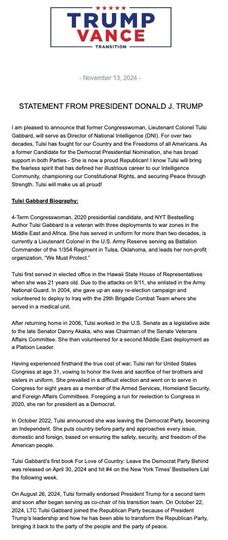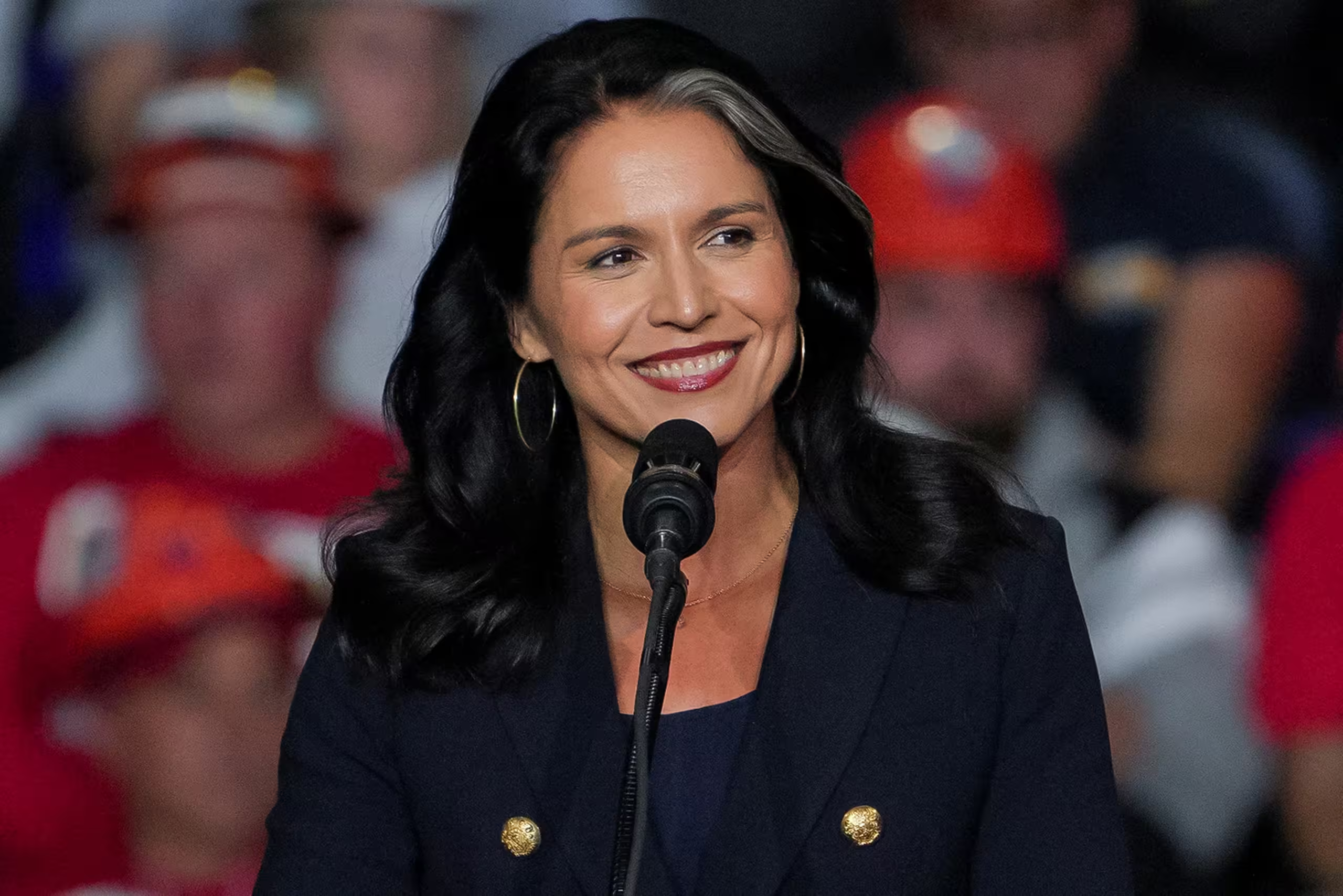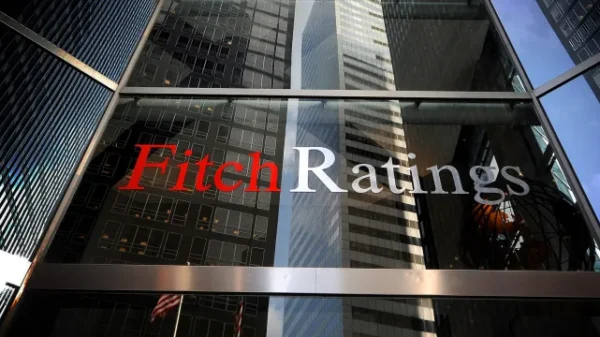US Intelligence Chief
President-elect Donald Trump’s nomination of Tulsi Gabbard as the new director of national intelligence has raised significant concerns within the U.S. national security community.
Gabbard, a former Democratic congresswoman with limited intelligence experience, has become a controversial figure due to her perceived leniency toward Russia and Syria.

Critics fear that her appointment could further politicize the U.S. intelligence community, as Trump appears to prioritize personal loyalty over expertise in filling key positions within his administration.
One of the main concerns surrounding Gabbard’s nomination is her stance on international relations, particularly her criticism of President Joe Biden’s policies on Ukraine and her meeting with Syrian President Bashar al-Assad in 2017.
Her comments, which some view as supportive of Russia’s actions in Ukraine, have raised alarm among both intelligence officials and U.S. allies.
There are fears that her geopolitical views, shaped by isolationist tendencies, may result in a distorted understanding of global threats, potentially undermining U.S. intelligence gathering and analysis.
Randal Phillips, a former CIA operations director, expressed concerns that appointing Trump loyalists to high-level positions in the intelligence community could lead to questionable decisions that serve the president’s interests rather than the country’s national security.
Additionally, there is worry that foreign allies may be hesitant to share vital intelligence with the U.S. under a leadership perceived as politically motivated.
This is especially concerning for the “Five Eyes” intelligence alliance, comprising the U.S., UK, Canada, Australia, and New Zealand.
While some analysts suggest that Gabbard’s appointment could be balanced by other picks, such as John Ratcliffe for CIA director, the overall trend of selecting loyalists has raised fears about a lack of checks and balances.
Critics, including Democratic lawmakers, argue that Gabbard’s lack of qualifications and her potential to use intelligence for political gain undermine the integrity of the Office of the Director of National Intelligence, which was established to address gaps in coordination among U.S. intelligence agencies.
Despite the controversies, Gabbard’s supporters, including former Republican rivals like Marco Rubio, have defended her nomination, calling it a bold choice that could bring positive change.
However, Gabbard still faces significant opposition in the Senate, where she must be confirmed by a majority vote.
Given the Republican majority, her confirmation is likely, but her appointment will undoubtedly continue to stir debate about the future of U.S. intelligence and its role on the global stage.










